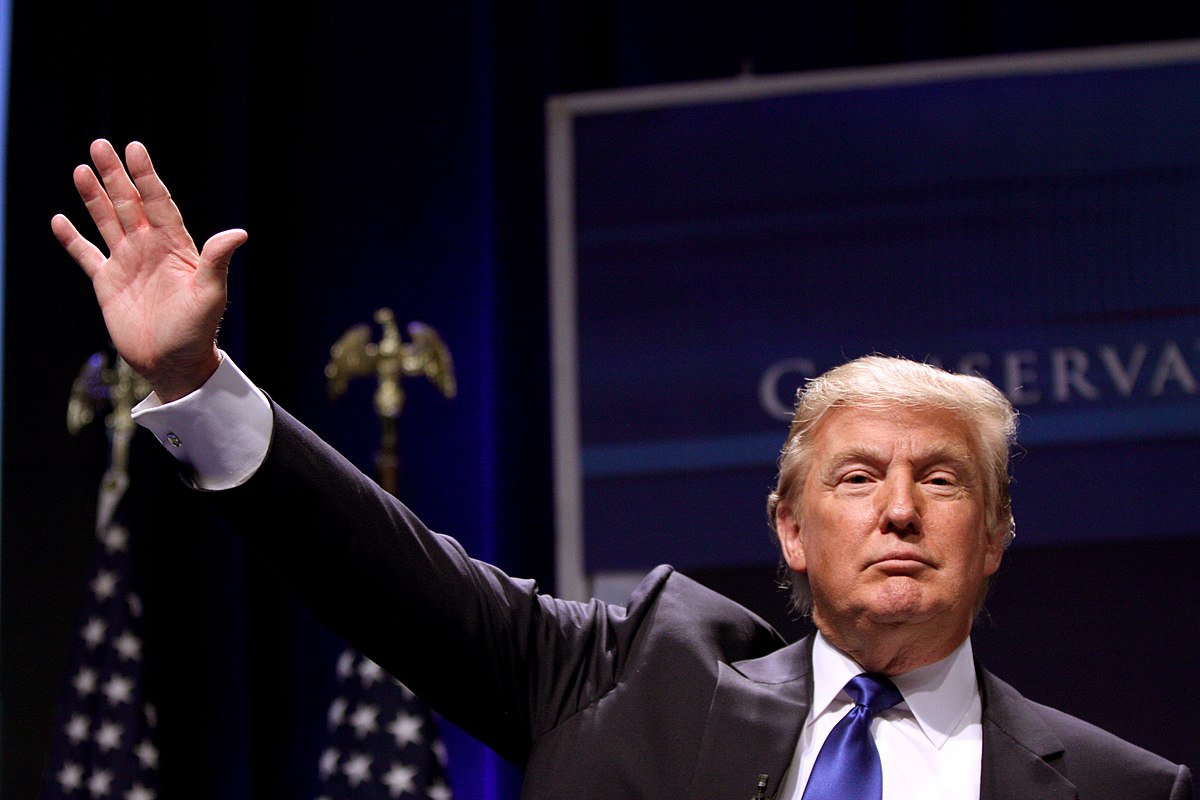- 14 3402-5578
- Rua Hygino Muzy Filho, 737, MARÍLIA - SP
- contato@latinoobservatory.org
 Gage Skidmore from Peoria, AZ, United States of America
Gage Skidmore from Peoria, AZ, United States of America
Former President Donald Trump has once again publicly defended his proposal to speed up mass deportations, even if it means waiving basic constitutional guarantees. In an interview with NBC, he questioned whether immigrants would be entitled to due process guaranteed by the U.S. Constitution, leaving open his willingness to circumvent what he considers judicial obstacles to his immigration policy.
Trump's statement comes amid his attempt to make good on a promise to carry out the largest deportation operation in American history. To achieve this goal, his government has pressured the courts to allow immediate removals, including of alleged members of the Venezuelan gang "Tren de Aragua," without the possibility of defense before a judge. While the Supreme Court has already reaffirmed the right to due process even for non-citizens, Trump suggests that such guarantees could delay his agenda, citing the need for "millions of trials" to deal with the volume of immigrants to be expelled.
During the interview, Trump repeatedly resorted to the argument that he is acting under the guidance of his lawyers, avoiding directly committing to the legal limits of his actions. The stance contrasts with the position of Secretary of State Marco Rubio, who had declared that all individuals on American soil have the right to due process. Asked about the Constitution, Trump replied ambiguously: "I don't know," reaffirming that he trusts his lawyers to interpret the law.
The Trump administration has also sought to exploit legal loopholes to expedite deportations, including the unprecedented use of the 1798 Foreign Enemies Act, historically applied only in wartime. This strategy, however, faces resistance in the courts. In a landmark decision, the Supreme Court blocked the summary deportation of men accused of belonging to the "Tren de Aragua," requiring them to be given a chance to contest the allegations.
Another case that exposed the system's failures occurred with Kilmar Abrego Garcia, a Salvadoran living in Maryland, deported on charges of belonging to the MS-13 gang, despite a court order to the contrary. The Supreme Court ordered his return to the United States, but the government said it had no means to force El Salvador to accept repatriation. Trump, asked about the case, deflected responsibility to the attorney general, declaring that it is up to the Justice Department to resolve the situation.
The interview also addressed the impact of immigration policy on citizens and legal residents, following allegations of mistaken detentions during his administration. Trump downplayed the risks, denying the need for legal residents to carry immigration paperwork, and redirected the debate to crimes committed by immigrants.
In addition to immigration, Trump used the conversation to comment on his threat to withdraw Harvard University’s tax-exempt status, accusing the institution of failing to combat anti-Semitism. Although federal law prohibits the president from instructing the IRS to act politically, Trump assured that he is supported by his lawyers and willing to take the issue to court.
The interview once again exposed Trump's willingness to test institutional limits, stating that he acts within the law while pushing interpretations that expand his executive powers. His statements reinforce the clash between the desire to quickly implement his political agenda and the legal mechanisms created to guarantee fundamental rights.











